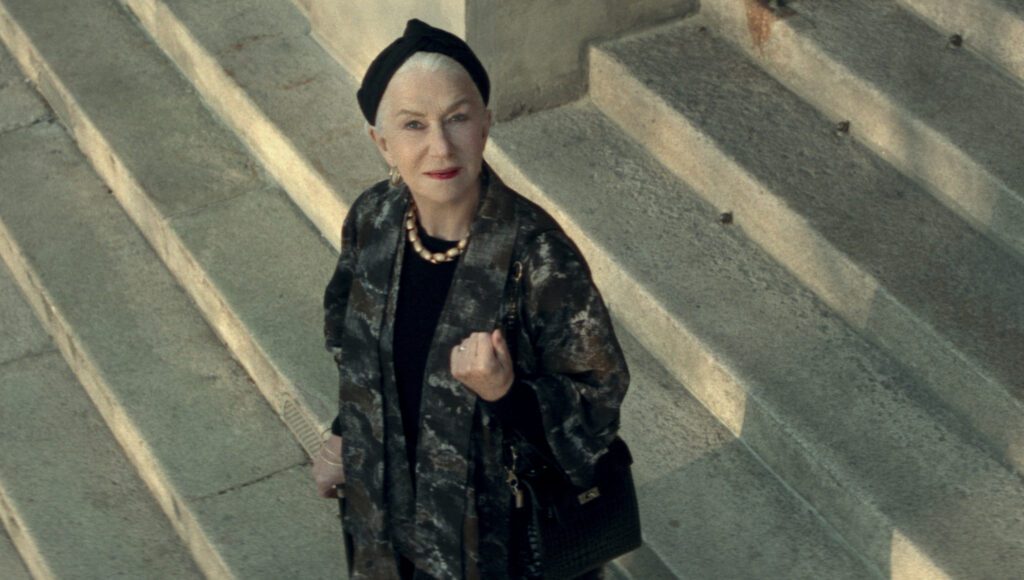Movie Review: ‘White Bird’ with Helen Mirren
By • October 3, 2024 0 2300

By Dina Gold
“Choose Kind,” the movement sparked by R.J. Palacio’s best-selling novel “Wonder” (and the subsequent film starring Owen Wilson and Julia Roberts), is a concept we could all benefit from right now. Millions of readers and movie goers will recall the poignant fictional story of Auggie Pullman, born with a rare facial deformity, who suffered under class bully, Julian Albans (Bryce Gheisar) and his friends, at Beecher Prep. Ultimately, kindness prevailed and delivered an inspirational and uplifting lesson in its power to build bridges and change hearts.
Now, the creative companion film based on Palacio’s acclaimed graphic novel of the same name, “White Bird,” directed by Marc Forster (“A Man Called Otto,” “Christopher Robin” and “Finding Neverland”), will arrive this week in movie theaters.
The story has moved on. Expelled from Beecher Prep on account of his cruelty, Julian is loath to face up to his personal responsibility for his fate, and he’s troubled by how best to fit into his new high school. The surprise arrival in New York of his Parisian grandmother, Sara Blum (Helen Mirren), sets up what follows: the flashback to Sara’s own childhood and a tale she has been reluctant to divulge … until now. From the present day, the film returns in time to the Nazi occupation of France and the unfolding of an extraordinary tale of bravery and compassion.
As Sara tells her grandson Julian “You forget many things in life, but you never forget kindness, because when kindness can cost you your life, it becomes like a miracle.”
And what she has kept to herself all these years is a truly remarkable, heroic and heart-rending story.
As a young girl from an upper middle class Jewish family in the French village of Aubervilliers-Aux-Bois, Sara (Ariella Glaser as the young girl) had been a pupil at École Lafayette where she and her friends had shunned fellow pupil Julien Beaumier (Orlando Schwerdt) who, as a result of polio, needed a crutch and caliper to walk. When German soldiers arrive to round up the Jewish schoolchildren, Sara flees and is guided by Julien through the sewers to safety at his parents’ humble home in rural Dannevilliers. It is there that Vivienne (Gillian Anderson) and her sewer-worker husband Jean Paul Beaumier (Jo Stone-Fewings) hide Sara in a hayloft in their run-down barn away from the prying eyes of their upstairs neighbors who are suspected Nazi informants.
Unable to venture outside for over two years, Sara was wholly reliant on the altruistic Beaumiers bringing her food, water, clothing, blankets and even colored pencils to enable her to follow her talent as an artist. Indeed, we learn that she became a highly regarded artist and painter after the war and is in New York visiting her son and his family as she has a retrospective at the Whitney Museum.
All alone, Sara welcomes seeing a white bird which she interprets as almost a divine presence, after which Julien hand-carves her a small wooden one as a birthday gift which she treasures for the rest of her life. The relationship between Sara and Julien develops into a deep friendship – he visits the barn every night to reteach her the school lessons, to play cards and indulge in magical fantasy driving trips to distant places – visiting glorious landmarks in Paris and seeing leopards, hyenas and giraffes in Africa.
Helen Mirren says she hopes “…audiences take away a sense of hope, a sense of belief in humanity. At the same time, a recognition of the dangers of certain kinds of attitudes and behavior. But most of all, hope.”
“White Bird” goes on general release Oct. 4.

